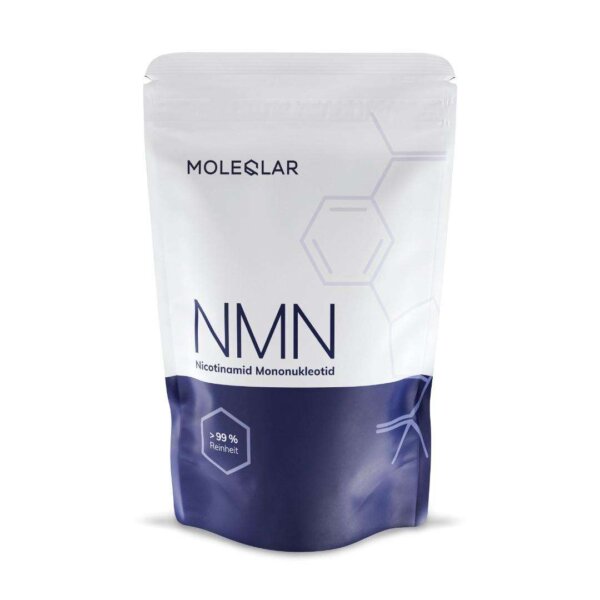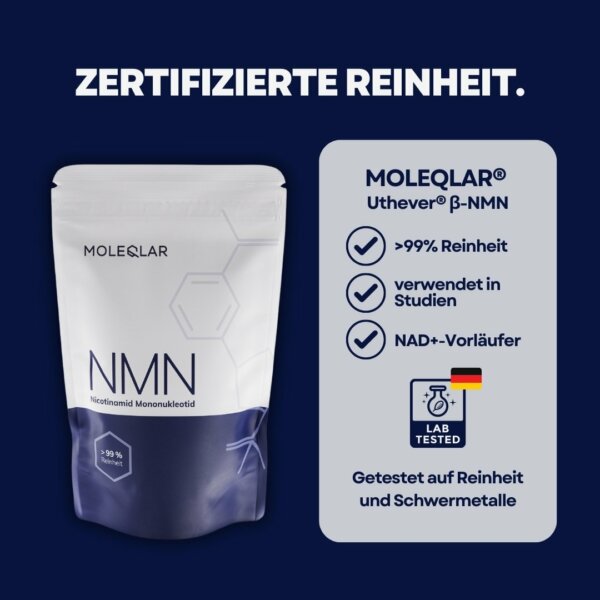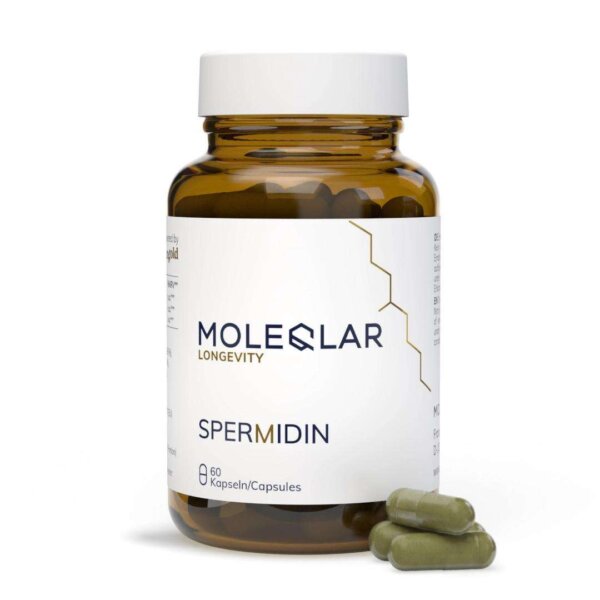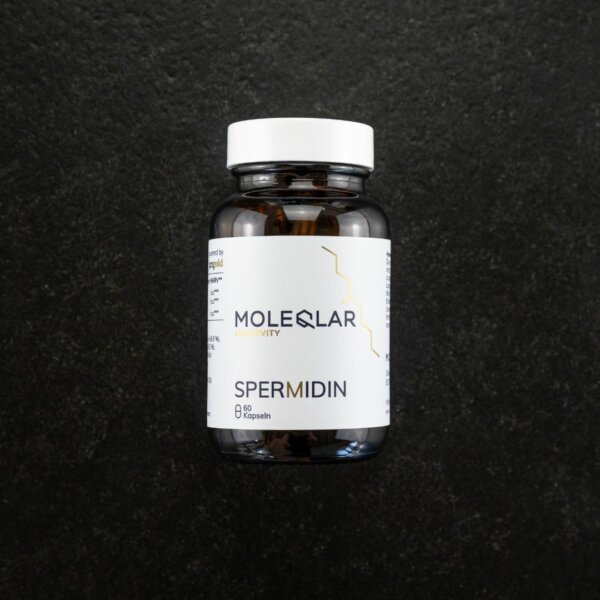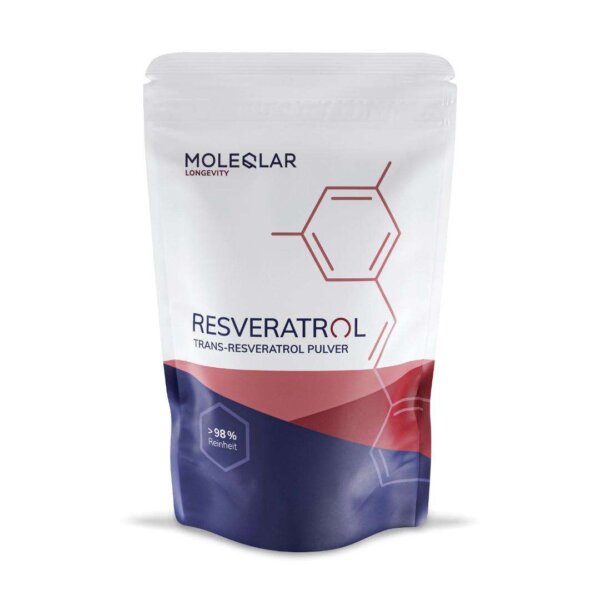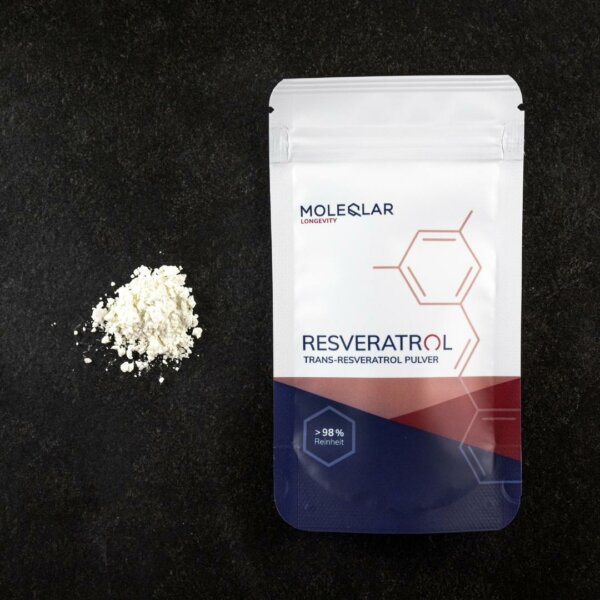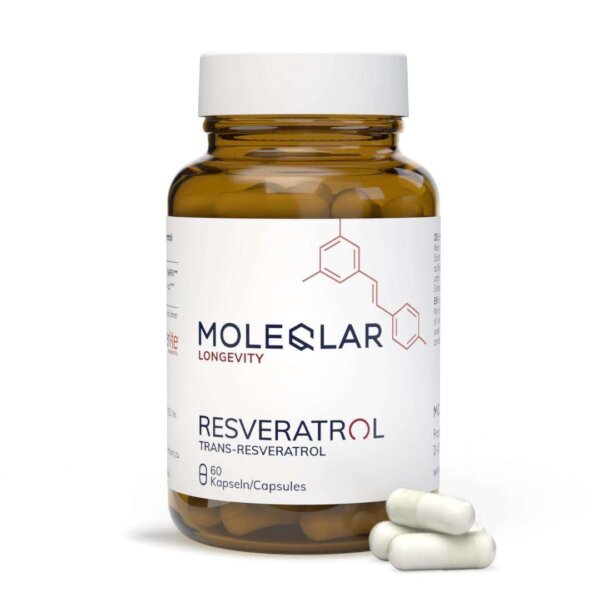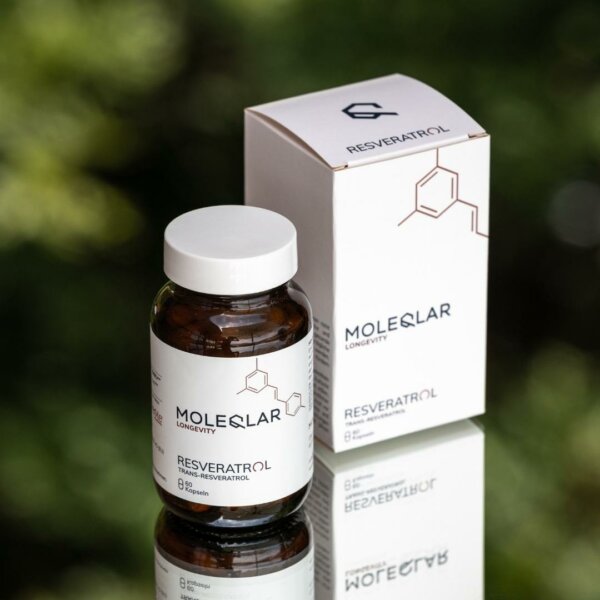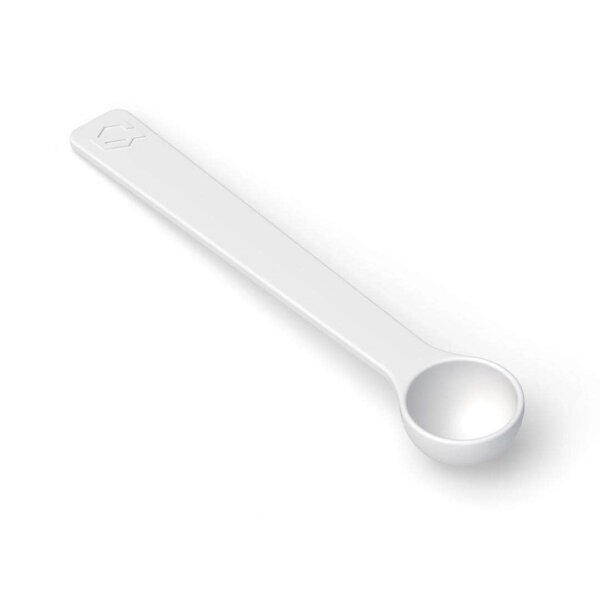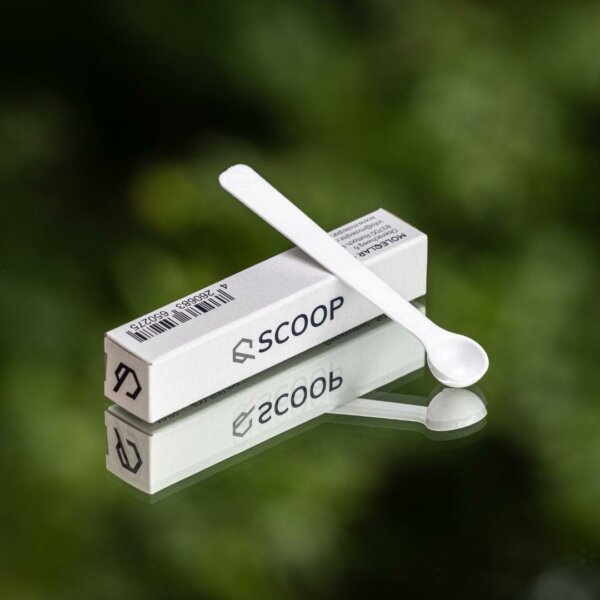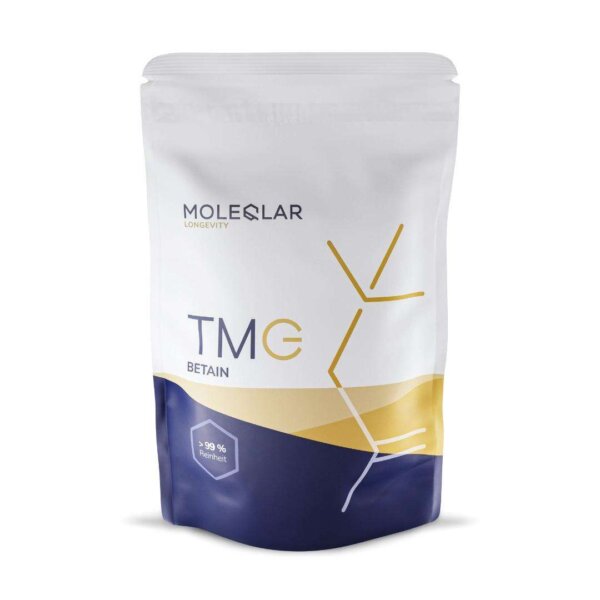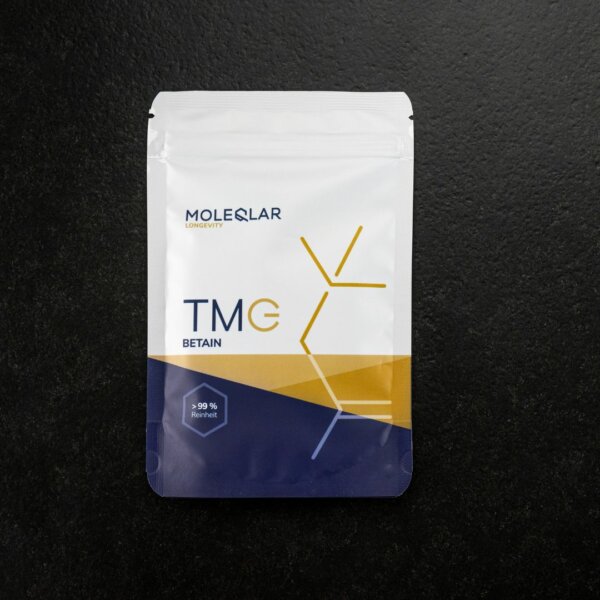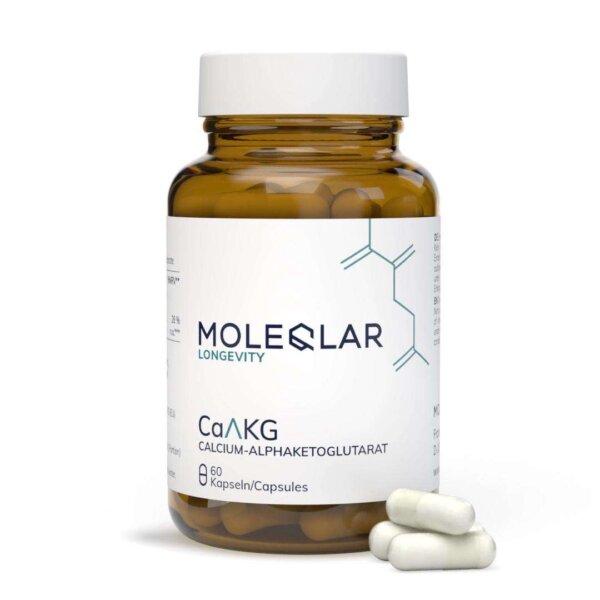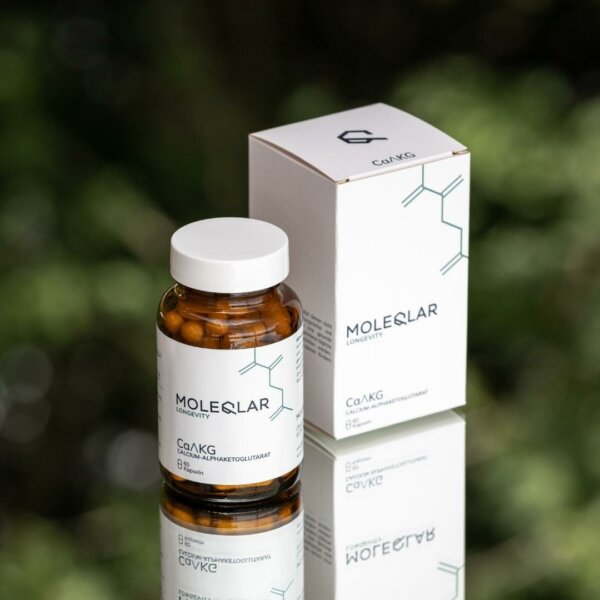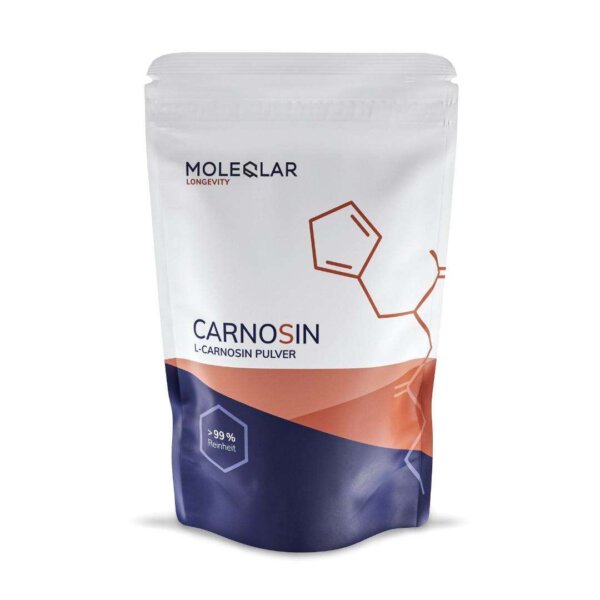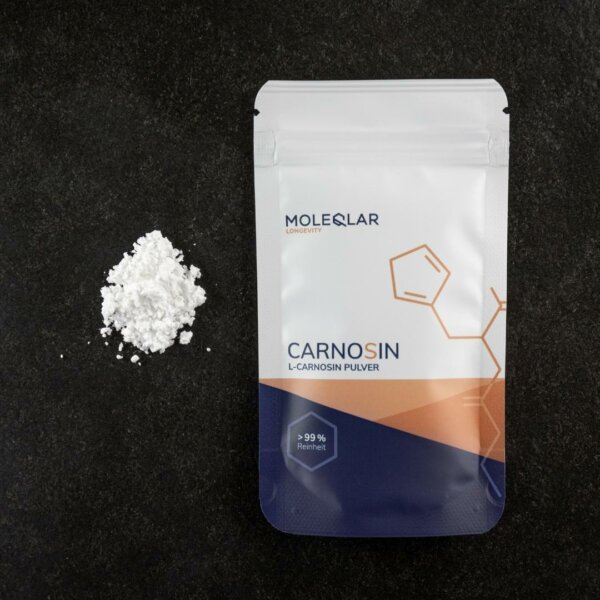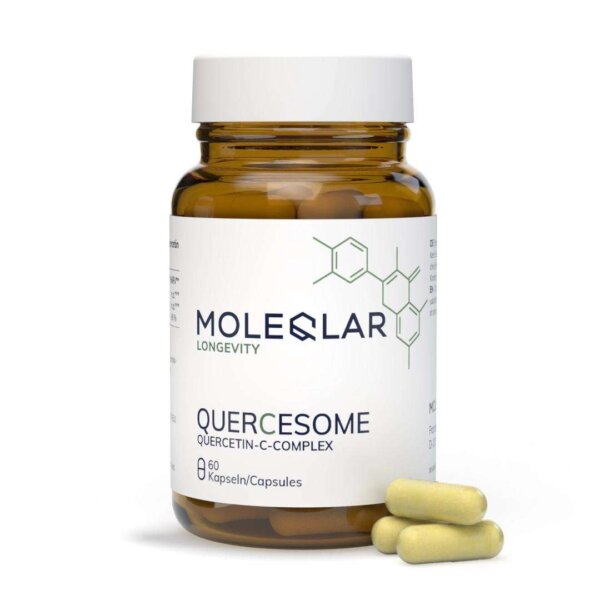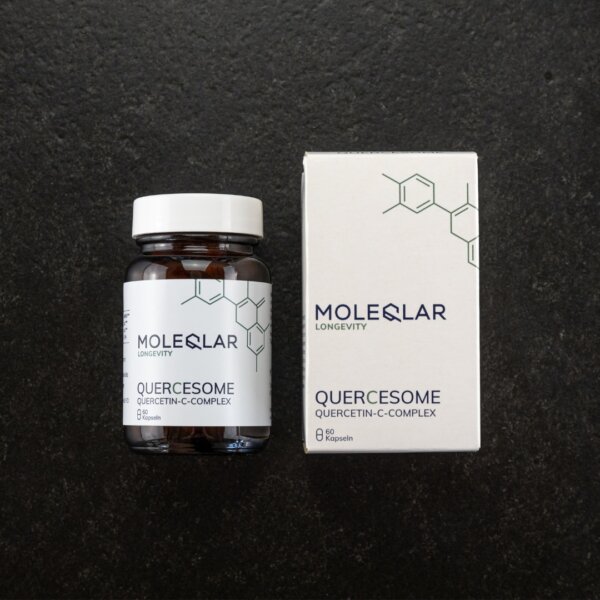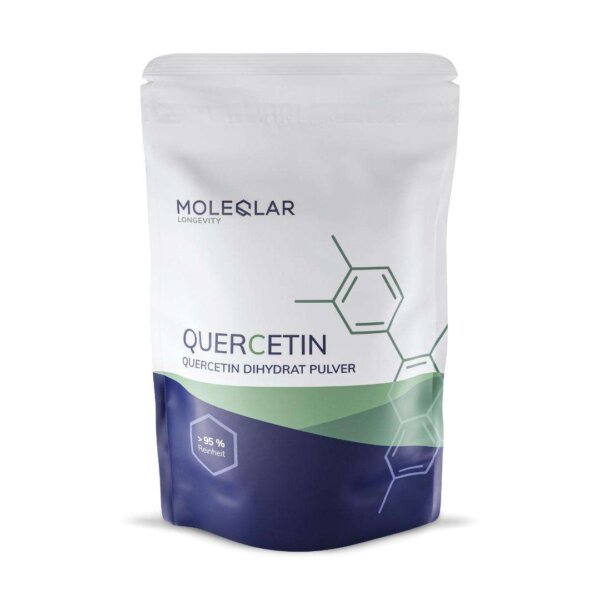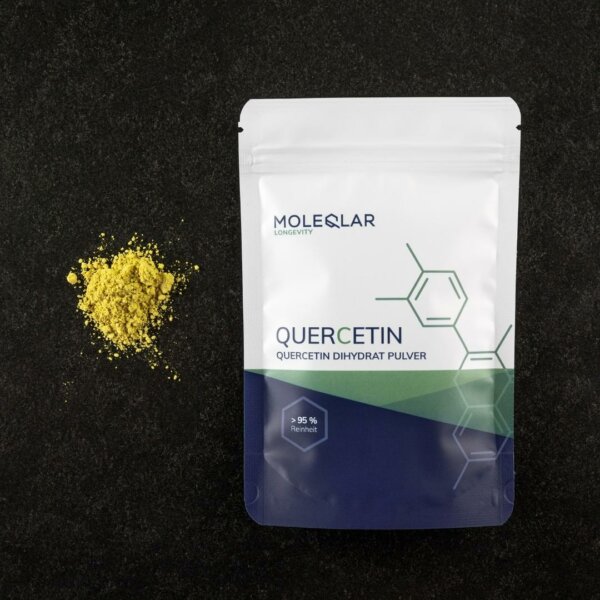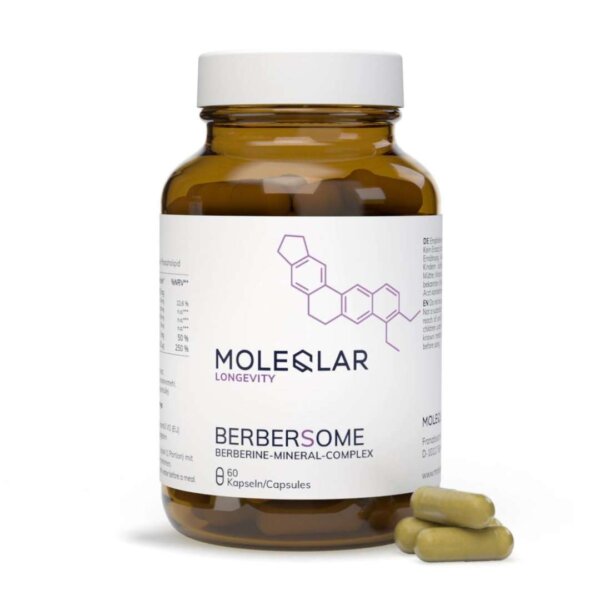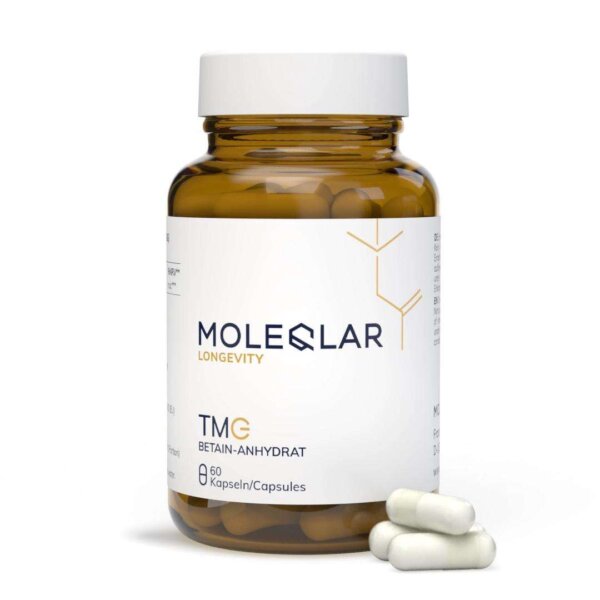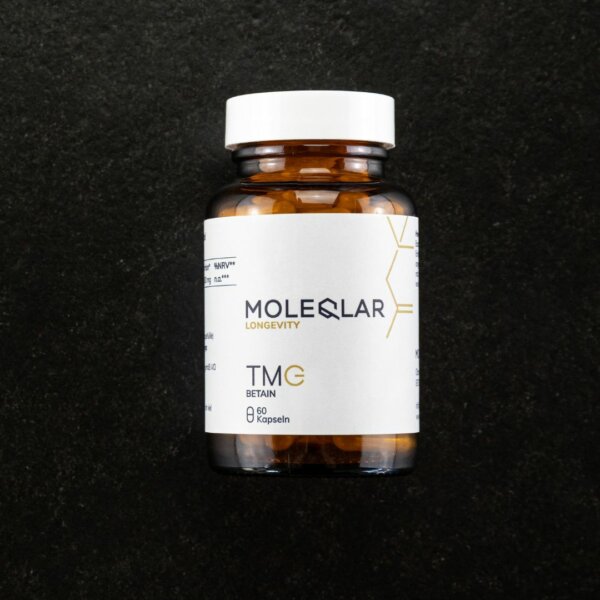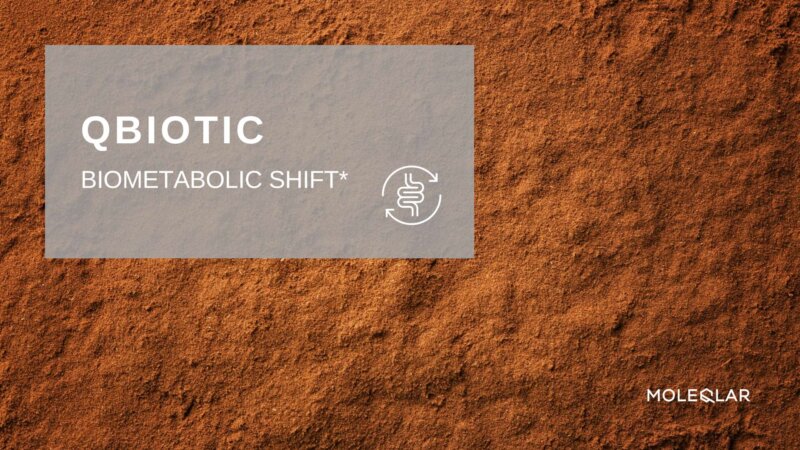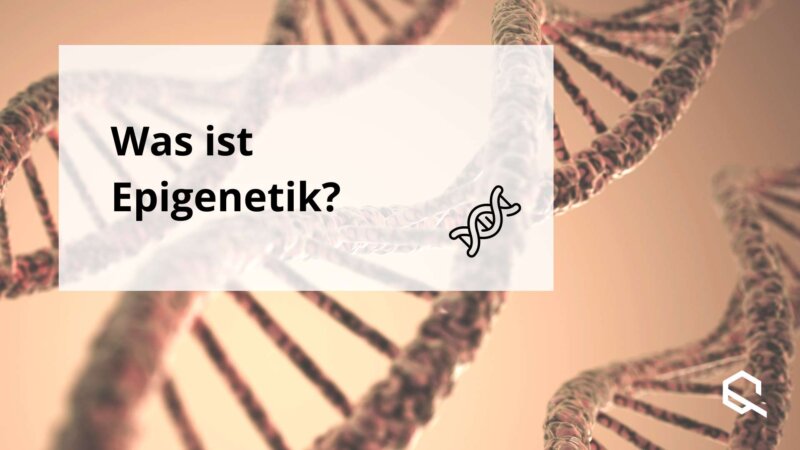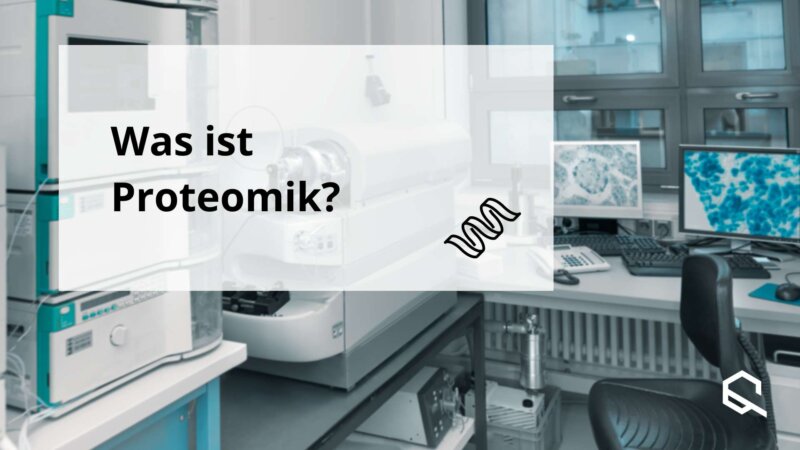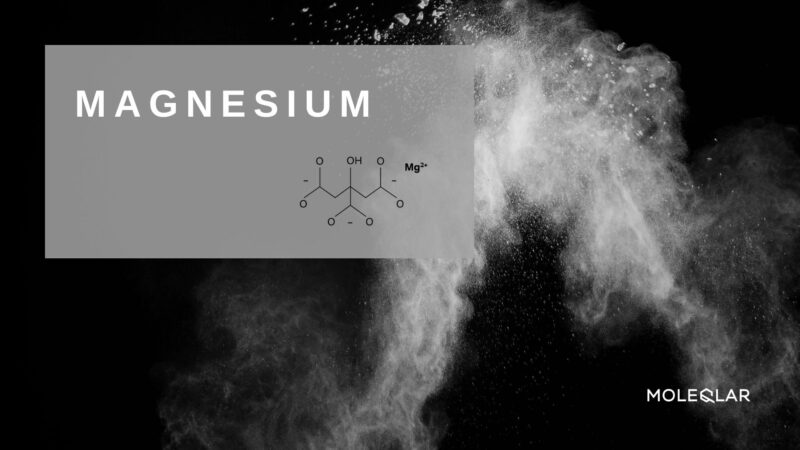Betaine (TMG) capsules
17,90 €
incl. VAT plus shipping costs
- 60 capsules of pure betaine powder (trimethylglycine/TMG)
- One glass of betaine (60 capsules) corresponds to a supply for 30 days (one portion = 2 capsules)
- 100% vegan, 100% GMO-free, purity certified in German laboratories.
- Betaine belongs to the group of methyl group donors and osmolytes(R)
- Contributes to a normal homocysteine metabolism (R, R)
- Showed health-promoting longevity effects in recent studies(R, R, R, R)
Betaine (trimethylglycine) is also available in powder form!
In stock
511,43 € / kg
In 2 to 4 working days with you within DE
Is often bought together
MOLEQLAR® Betaine (TMG) Capsules
Betaine/TMG is also available in powder form available!
Betaine, Trimethylglycine (TMG).
The molecule betaine (TMG) belongs to the group of methyl group donors and osmolytes. By donating methyl residues, it forms a crucial role in vital methylation processes of the human body. Current research shows a protective effect for health through its protective effect against metabolic diseases. Additionally, betaine supplementation promotes cellular protein synthesis and supports muscle growth. The health-promoting and performance-enhancing effects are continuously confirmed and constantly expanded by current studies.
More in What is betaine?
Longevity -
Effect with effect.
Function of Betaine (TMG).
Betaine is considered both a longevity molecule and a performance-enhancing substance. In this context, betaine mainly acts against homocysteine. Constantly elevated homocysteine levels lead to the development of diabetes mellitus, Alzheimer's disease and other cardiovascular diseases by damaging the vascular walls. Betaine, as a methyl group donor, helps to lower elevated homocysteine levels in the human body. Likewise, betaine acts as an osmolyte in regulating cell volume. It protects the cell by helping to maintain and stabilize water and energy balance, as well as metabolic function.
Betaine (TMG) influences the aging process in different ways. Studies have shown that betaine is associated with an increase in healthspan and even lifespan. This is manifested through its positive effects on the epigenome, inflammaging and proteostasis, which are among the hallmarks of aging.
Intake - your Longevity prescription.
We recommend a daily intake of 1000 mg betaine (TMG). To do this, simply take two capsules of TMG about an hour after or with your meals, preferably breakfast and dinner, with a glass of warm water (for better solubility).(R, R, R)
TMG capsules: 1-0-1 (morning - noon - evening)
The specified recommended daily intake should not be exceeded. Food supplements are not a substitute for a balanced and varied diet and a healthy lifestyle. Please keep out of reach of children. The product should be stored in a cool and dry place. Also keep out of direct sunlight and away from heat.
The information provided is not intended to be a cure or a solicitation for self-medication. Possible printing and typesetting errors reserved.
As of 22.03.2023.
Details
to the product.
Betaine - the inner values.
| FILLING QUANTITY | 60 capsules; 35.7 gram |
| SHAPE/APPEARANCE | Pressed into capsules; white |
| COATING | Hydroxypropylmethylcellulose (HPMC) |
| INGREDIENTS | Betaine anhydrate (trimethylglycine/TMG) |
| PORTION | 1000 mg (2 capsules) |
| RECOMMENDED CONSUMPTION | Take one serving (two capsules) daily with plenty of liquid. |
Betaine - the inner values.
| FILLING QUANTITY | 60 capsules; 35.7 g |
| SHAPE/APPEARANCE | Pressed into capsules; white |
| COATING | HPMC |
| INGREDIENTS | Betaine anhydrate (TMG) |
| PORTION | 1000 mg (2 capsules) |
| RECOMMENDED CONSUMPTION | Take one serving daily (two capsules) with plenty of liquid. |
Quality before quantity.
We have nothing to hide! Transparency is not only capitalized at the beginning of a sentence at MoleQlar, but also when it comes to the quality of our products. Each and every one of our products - this of course also applies to TMG capsules - is tested and certified for purity and heavy metals both by our manufacturer and by the independent Arotop Laboratories of Limbach Analytics in Mainz, Germany. You can find the certificate of analysis of TMG capsules here. Convince yourself of MoleQlar's quality!
Here you can find out more about quality assurance at MoleQlar!
Certificates batch 23092266
October 2023
Certificates batch 23051837
August 2023
Certificates batch 23021278
April 2023
Frequently
Asked Questions.
How can we help you?
You have questions? And we have the answers! Well, most of the time anyway. But this is where we can help you the fastest - find the answers to all topics and the most frequently asked questions. Also, feel free to check out our social media platforms! If you still can't find the answer you're looking for, just contact us!
Methyl group donors such as folic acid, vitamin B12 and betaine are important because they are involved in many biochemical processes in the body, such as DNA methylation, regulation of gene expression and synthesis of neurotransmitters. They also play a role in molecular processes where there is an increased demand for methyl groups. An example of this is the supplementation of NAD boosters, which studies have shown lead to an increased demand for methylation processes and thus benefit from simultaneous dietary supplementation with betaine, for example.(R)
A deficiency of methyl group donors can lead to other various health problems, such as damage to DNA, abnormalities in cell metabolism, and nervous system disorders. Adequate intake of these nutrients through a healthy diet or supplements can help prevent deficiency and support health.
A deficiency of betaine can be difficult to diagnose because the signs are not specific and can also be caused by other factors. Some possible symptoms of a deficiency of betaine can be:
- Anemia: Betaine plays a role in the processing of folic acid and vitamin B12, both of which are important for the formation of red blood cells. A deficiency of betaine can therefore lead to anemia.
- Nervous disorders: Betaine is important for the synthesis of neurotransmitters and a deficiency can lead to nervous system disorders, such as depression, anxiety and difficulty concentrating
- Homocysteinuria: Betaine is also important for the processing of homocysteine, an amino acid metabolite that can be harmful in high concentrations. A deficiency of betaine can therefore lead to homocysteinuria, an inherited disease characterized by elevated levels of homocysteine in the blood.
- Liver Damage: Betaine is important for liver detoxification and a deficiency can cause damage to the liver.
It is important to point out that these symptoms can also be caused by other factors and it is always advisable to consult a doctor if you think you are suffering from a deficiency.
High homocysteine levels in the body, also called hyperhomocysteinemia, can be a risk factor for several health problems. Some possible signs of high homocysteine levels in the body are:
- Cardiovascular disease: High homocysteine levels in the blood increase the risk of cardiovascular diseases, such as heart attack, stroke and peripheral arterial disease.
- Vascular damage: Homocysteine can damage blood vessels and lead to atherosclerotic changes, such as deposits of fat and calcium in the arteries.
- Kidney damage: High homocysteine levels can damage the kidneys and increase the risk of kidney disease.
- Osteoporosis: Homocysteine can weaken bones and increase the risk of osteoporosis.
- Memory disorders and dementia: High homocysteine levels may increase the risk of memory disorders and dementia.
It is important to emphasize that a high homocysteine level does not necessarily cause symptoms. Likewise, regular monitoring of the homocysteine level in the blood should be carried out, especially if risk factors such as smoking, alcohol consumption, hypercholesterolemia, hypertension or diabetes are present. A physician can determine a homocysteine level in the blood through a blood test and take appropriate measures if necessary.
Betaine (TMG) is a water-soluble molecule. It should therefore be taken with plenty of liquid, ideally a glass of water. In principle, betaine (TMG) is extremely well absorbed into the body and has a high bioavailability.(R, R)
More at How can I take betaine (TMG) correctly?
Do not exceed the recommended dosage. In case of possible undesirable side effects, contact a health care professional.
In principle, you can assume a shelf life of about two years. This information serves only as a guideline, can therefore vary and is without guarantee. The exact best-before date of your purchase can be found on the back of the betaine (TMG) can or on the packaging. Further information or details can be found on the product page.
The molecule betaine is best stored in a cool, dry place. Also keep out of direct sunlight and away from heat. Please keep out of the reach of children.
Matching articles from the magazine








